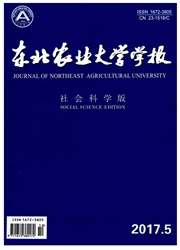

 中文摘要:
中文摘要:
自从伯努里(Daniel Bernoulli,1738)提出圣彼得堡悖论以来,传统的期望货币价值(EMV)准则遭到了颠覆,期望效用价值(EUV)准则逐步得到确立,并在风险与不确定性决策领域长期居于主导地位。然而,EUV准则并不是一个完善的准则,不能很好地对超级圣彼得堡悖论、阿莱悖论以及Ellsberg悖论进行解释,这是比较令人失望的。结合历史分析与逻辑分析,本文提出,在风险与不确定性决策问题中,人们所关心的不是货币价值,也不是效用价值,而是状态价值。在状态量化、状态一收益函数插值等方面进行论述的基础上,对主要的决策悖论问题进行了演算,结果表明,本文提出的期望状态价值(ESV)能够成功地同时消解圣彼得堡悖论、超级圣彼得堡悖论、阿莱悖论以及Ellsberg悖论,显示了相对于EMV准则以及EUV准则的ESV准则具有新鲜的生命力,为管理过程中的决策问题提供一条新思路。
 英文摘要:
英文摘要:
Since the St. Petersburg Paradox was proposed by Daniel Bernoulli in 1738, the traditional Expected Monetary Value (EMV) standards has been subverted, and the Expected Utility Value (EUV) criteria has been established gradually which has dominated the field of risk and uncertain decision making for a long term. However, the EUV criteria is not perfect and disappointing somewhat, which can be proved by the fragile explanations to the St. Petersburg Paradox, the super St. Petersburg Paradox, the Allais Paradox and the EIIsberg Paradox. Combined with historical analysis and logic analysis, this paper proposed that in the process of risky and uncertain decision making, what people care about really is neither the monetary value, nor the utility value, but the state value. Under the base of state quantification and state - revenue - function interpolation, we took the four famous paradox problems as demonstrations. The results show that the Expected State Value (ESV) principle proposed in this paper can digest the St. Petersburg paradox, the super St. Petersburg paradox, Allais paradox and the Ellsberg paradox successfully at the same time. This indicated that the ESV principle proposed by us has obvious advantages over the EMV standards and EUV criteria.
 同期刊论文项目
同期刊论文项目
 同项目期刊论文
同项目期刊论文
 期刊信息
期刊信息
